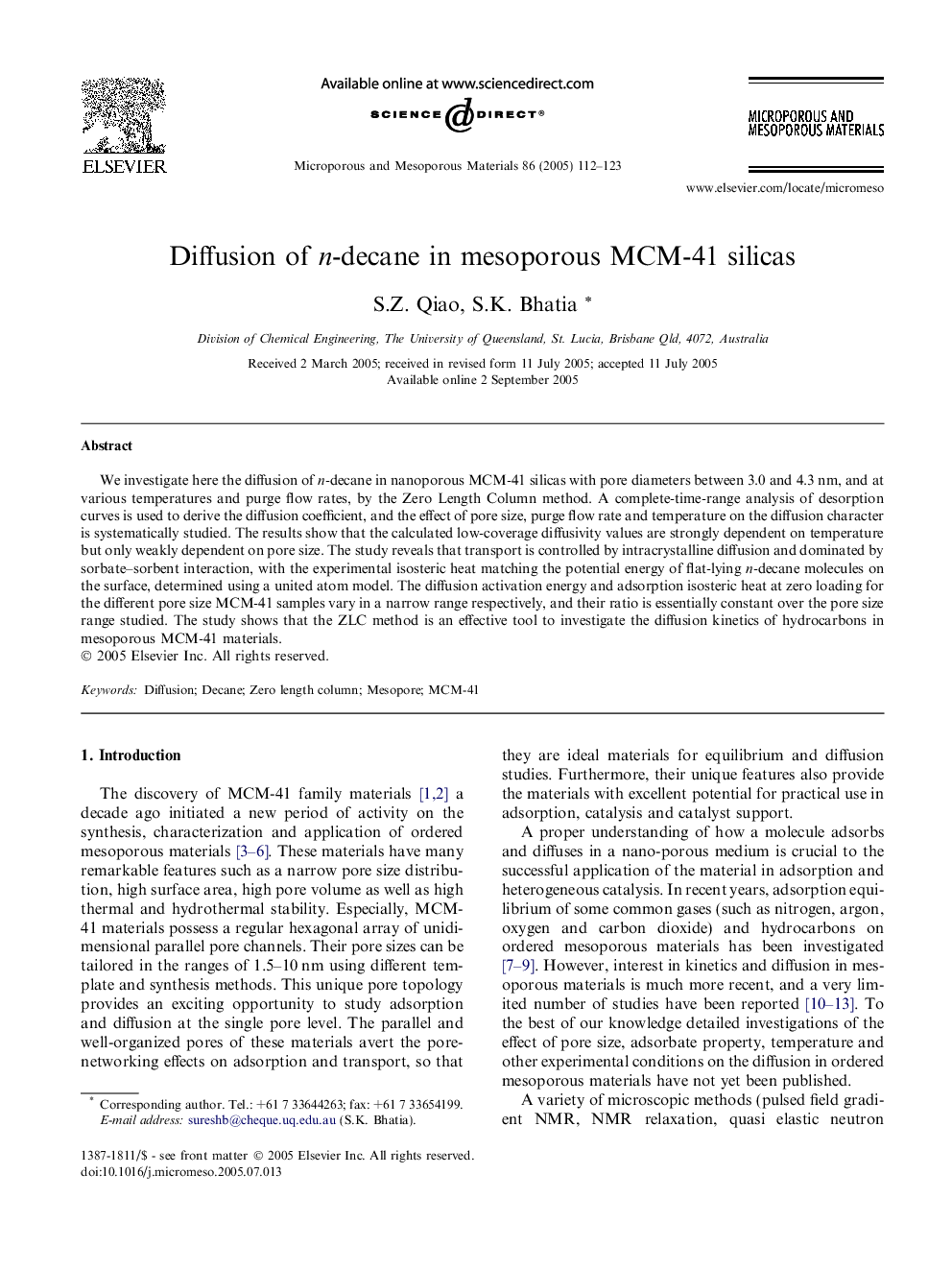| Article ID | Journal | Published Year | Pages | File Type |
|---|---|---|---|---|
| 9617523 | Microporous and Mesoporous Materials | 2005 | 12 Pages |
Abstract
We investigate here the diffusion of n-decane in nanoporous MCM-41 silicas with pore diameters between 3.0 and 4.3Â nm, and at various temperatures and purge flow rates, by the Zero Length Column method. A complete-time-range analysis of desorption curves is used to derive the diffusion coefficient, and the effect of pore size, purge flow rate and temperature on the diffusion character is systematically studied. The results show that the calculated low-coverage diffusivity values are strongly dependent on temperature but only weakly dependent on pore size. The study reveals that transport is controlled by intracrystalline diffusion and dominated by sorbate-sorbent interaction, with the experimental isosteric heat matching the potential energy of flat-lying n-decane molecules on the surface, determined using a united atom model. The diffusion activation energy and adsorption isosteric heat at zero loading for the different pore size MCM-41 samples vary in a narrow range respectively, and their ratio is essentially constant over the pore size range studied. The study shows that the ZLC method is an effective tool to investigate the diffusion kinetics of hydrocarbons in mesoporous MCM-41 materials.
Related Topics
Physical Sciences and Engineering
Chemical Engineering
Catalysis
Authors
S.Z. Qiao, S.K. Bhatia,
